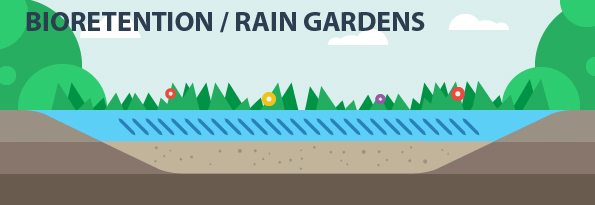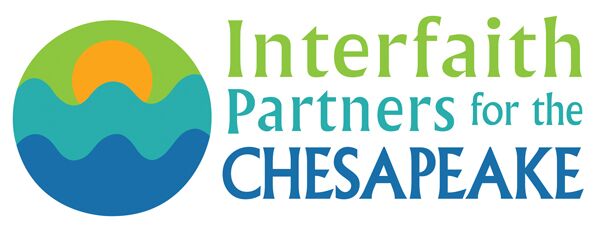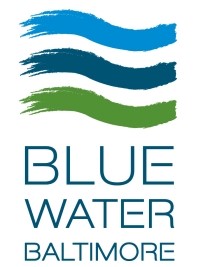Kadampa Meditation Center Garden

Parts of the Chesapeake Bay watershed contain a high percentage of impervious cover – paved or other hard surfaces such as roofs and roadways that prevent rain water from being absorbed into the ground. Instead, water runs along these surfaces, collecting trash and substances such as motor oil, lawn fertilizers, and pesticides. This polluted stormwater flows into streams and rivers, where it threatens aquatic ecosystems and public health.
Effective stormwater management, on the other hand, creates safe paths for polluted runoff to be captured and filtered through the ground before it reaches waterways. This helps keep the environment clean and our communities healthy!

Project location: Baltimore, MD
Problem: Baltimore’s Kadampa Meditation Center is located in the urban Chinquapin Park neighborhood. In addition to the Buddhist temple, the Center also houses a café, bookshop, and now, a World Peace Meditation garden. Previously, the Center’s campus had been experiencing drainage issues, with runoff from the facility’s large roof and parking lot unable to adequately drain, due to poor site grading and existing soil conditions.
Solution: Working with a broad coalition of partners including Blue Water Baltimore and Interfaith Partners for the Chesapeake, the Center developed a master plan to correct and capture water flows on the site. Project elements included site regrading, the installation of several rain gardens, and landscaping with native plants and fruit trees. The garden now produces fruits and vegetable for use in the Center’s onsite café, and it serves as a peaceful setting for congregants to take classes, meditate, and commune with nature. The project earned the Center a 2017 Best of Baltimore award for best urban garden.
Scale: 23,930 square feet
Pollutants reduced: 50 nitrogen; 60% phosphorous; 90% sediment
Funding sources: Chesapeake Bay Trust; fees from classes and events and gifts from private donors
Partners: Baltimore Orchard Project; Blue Water Baltimore; Civic Works; Community Greening Resource Network; Interfaith Partners for the Chesapeake; Johns Hopkins Center for a Livable Future; Tree Baltimore
More information: https://meditationinmaryland.org/about-us/cafe-shop-gardens/



